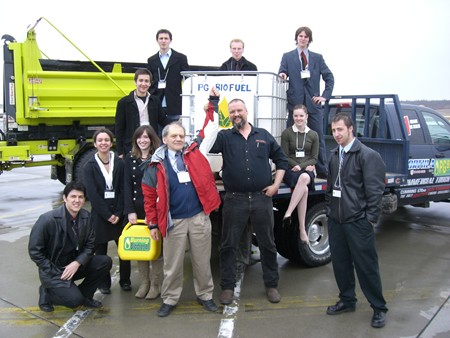Bio-Diesel Fuels New Business
By 250 News
Saturday, March 31, 2007 03:58 AM

Principles of the P.G. Bio Diesel company: Sarah Sykes, Tim Joyce, Patrick Daley, Steve Reinitz, Rod Duerksen, Geoff Anthony, Krysia Morgan, Celeste Kerbrat, and Mark Viveiros
The Prince George Airport Authority has become another user of PG Biofuel Inc.
The company showed off its two newest clients today, a Prince George Airport diesel truck snow plow and another utility truck that will burn the new fuel.
Biofuel Inc. is a corporation that was started by 13 students from CNC through the "Business the next Generation Program" offered at the College of New Caledonia.
Mark Miller, Director of Operations at the Airport says, "We are happy to be able to take part in this program to improve air quality."
Previous Story - Next Story
Return to Home








